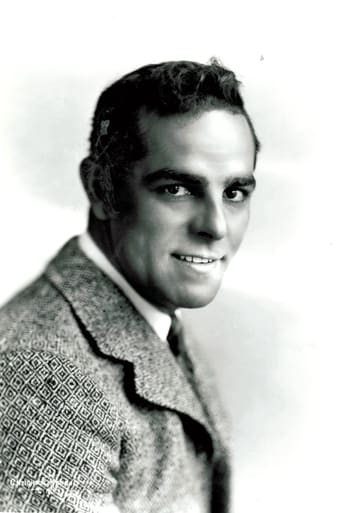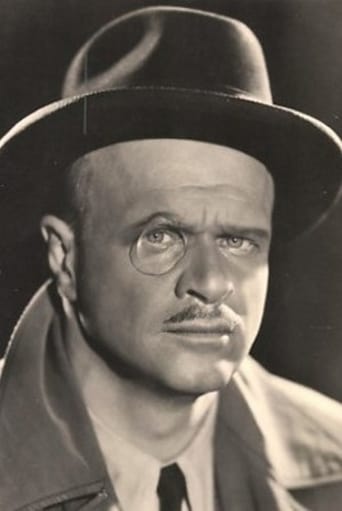BootDigest
Such a frustrating disappointment
Beanbioca
As Good As It Gets
Beystiman
It's fun, it's light, [but] it has a hard time when its tries to get heavy.
Tymon Sutton
The acting is good, and the firecracker script has some excellent ideas.
wes-connors
Handsome seaman Antonio Moreno (as Ulysses Ferragut) grows up enthralled by the legendary goddess "Amphitrite". The bewitching blonde is described as "the mother and sweetheart of all Mediterranean sailors," and Mr. Moreno keeps a portrait of her in his Barcelona home. There, Moreno lives comfortably with dark-haired wife Kithnou (as Cinta) and their beloved son Michael Brantford (as Esteban). Moreno captains his freighter ship "Mare Nostrum" (Latin for "Our Sea") along the Mediterranean while his wife worries about their son's frequently absent father...To be a better father, Moreno decides to give up the lovely "Amphitrite" illusion and his seafaring to spend more time at home. This would leave the "Mare Nostrum" in the hands of Frederic Mariotti (as Toni) and obese Christian cook Hughie Mack (as Caragol). But, two things alter Moreno's plans. First, the Great War (aka World War I) begins, making his shipping business more lucrative and important. Then, Moreno meets alluring Alice Terry (as Freya Talberg), who appears to be the sea goddess "Amphitrite" come to life. Alas, Ms. Terry is no goddess, she's spy for Germany! Continuing to strive for art, director Rex Ingram slowed down his dramatic pace and vowed to film exclusively outside of Hollywood for "Mare Nostrum". It had all the ingredients of a blockbuster - successful director (Ingram), handsome star (Moreno), proved source material (Ibanez), and popular female (Terry) - all done at a healthy budget for MGM distribution. Trouble is, the film simply does not deliver the anticipated excitement. While it seems to presently be lacking its original soundtrack, the surviving print is great condition. It's beautifully shot in France, Italy and Spain.****** Mare Nostrum (2/15/26) Rex Ingram ~ Antonio Moreno, Alice Terry, Hughie Mack, Mickey Brantford
Ron Oliver
A young Spanish sea captain learns about life & death, great love & passionate hatred, while sailing the waters of MARE NOSTRUM - ‘Our Sea.'Brilliant & disturbing, this was the last important film from acclaimed silent director Rex Ingram. Produced to great effect on location in the Western Mediterranean, this was one of Metro's biggest films of the 1920's. Returning to the author who had already given him enormous success with THE FOUR HORSEMEN OF THE APOCALYPSE - Vicente Blasco Ibáñez - Ingram would once again produce a film of exceptional high quality. Today, it is all but forgotten...Antonio Moreno gives a vivid performance as the Captain who is used so harshly by fate. His doleful eyes linger in the imagination of the viewer long after the end of the film. Alice Terry - Mrs. Rex Ingram - is sultry & beautiful as the Austrian spy who seduces Moreno. Her firing squad scene is considered a classic of pacing & composition, and she is magnificent in it.Uni Apollon is very effective in his few minutes as an old Spanish sea dog. Madame Pâquerette, as a large, mannish German spy master is formidable. Hughie Mack, as an absolutely loyal, grossly obese Spanish servant, is especially satisfying. (This excellent character actor would die from heart disease the year after MARE NOSTRUM's release, at the age of only 42.)The unfortunate use of obvious models for some of the scenes at sea is more than mitigated by the presence of real ships & submarines in others. The filming among the ruins in Italy's Pompeii & Paestum, as well as the spy chase along the waterfront in Marseille, add tremendously to the overall ambiance of this remarkable film.The underwater sequences with Amphitrite, goddess of Mare Nostrum, are absolutely haunting.
rfkeser
About ten minutes into this plush production comes a jaw-dropping scene of visual fantasy--a vision of the maritime goddess Amphitrite--which is matched by a similarly striking underwater sequence at the end. Unfortunately, between these bookends sits a Victorian melodrama of adultery/guilt/expiation, which is then shoe-horned into a WWI spy plot: betrayal of spouse reflected in betrayal of country.Despite its mythological and religious trappings, this is deeply conventional story-telling: while an artist examines the ambiguities of behavior, director Rex Ingram is satisfied with this formula plot, leaving his actors no credible characters to develop and only pot-boiler dialogue to mouth ["You are the only man I ever loved!"]. So, although Antonio Moreno looks fit in his sailing captain's uniform, he mostly frowns in pain or puzzlement, while the excellent Alice Terry must enact everything from villainy to martyrdom with little help. The other players are earnest, some used for heavy-handed stabs at humor; however, this film's disregard for people becomes clear as--late into the film--new, throw-away characters keep appearing to deliver more exposition.The action sequences--impressively shot on locations in Barcelona, Marseilles and Naples--include a mob chasing a German spy around a harbor, plus several submarine attacks and shipwrecks [done with entertainingly elaborate though unconvincing miniatures]. Yet even the visuals seem conventional and static, like academic paintings, especially when compared to the cinematic dynamism of Sternberg or Walsh.The title refers to the Mediterranean Sea, but is also the name of the hero's ship, and acquires still a third meaning at the end.
Dsosin
This is a first-rate WWI spy film, shot on location in Pompeiiand elsewhere; the story is gripping and the details ofcharacter are finely thought out. It was shown to great acclaimat AMMI and Pordenone. I provided a piano score in eachvenue





